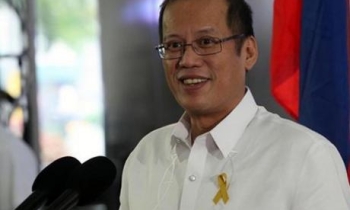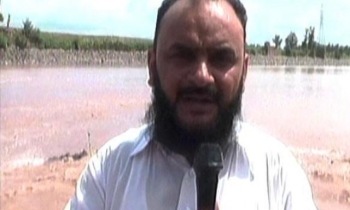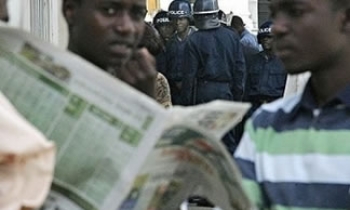Hundreds of journalists from around the world gathered Monday for a congress held in Moscow as part of an effort to promote Russian press freedom and fight impunity enjoyed by the killers of Russian journalists.
But with few government officials in attendance, the effort is off to a bad start.
By choosing Moscow for its meeting, the Brussels-based International Federation of Journalists wants to promote democratic values in Russia, said Aidan White, the federation's general secretary.
"The problem is that this country is on a path that will not reach democracy and respect for human rights," White said on the sidelines of the five-day congress, held at the World Trade Center, just a few minutes' walk from the White House.
"We are talking about a serious, major player in the world. We expect it to be a model of the way a country can reform. But it's a history of failures."
He and other congress speakers accused Russia of insufficient political will to prosecute the murderers of journalists such as Paul Klebnikov and Anna Politkovskaya -- a problem aggravated by incompetence and corruption in law enforcement.
"In reality, no one is found; no one is prosecuted," White said. "It's a scandal."
A special session on Monday was dedicated to impunity in the killing of journalists worldwide. "I think it is appropriate, helpful and commendable to discuss the situation in the country where the most journalists are killed in peacetime," said Mikos Haraszti, representative on media freedom at the Organization for Security and Cooperation in Europe.
According to the Brussels-based International News Safety Institute, 89 journalists have been killed for their investigative reporting in Russia since 1997, said Igor Yakovenko, general secretary of the Russian Union of Journalists.
The only country where more journalists have been killed is Iraq, he said.
The choice of Moscow for the congress "means that the entire world recognized Russia as the world's most dangerous place for journalists," said Alexei Simonov, chairman of the Glasnost Defense Foundation. But he said the congress would fail to make Russia safer because no government officials came to listen to the special session.
President Vladimir Putin did not join the meeting's 500 participants, shunning repeated invitations from the press freedom organization, whose members include 161 unions in 117 countries. Moscow is playing host to the congress for the first time. "I invited President Putin, but I had no response," White said.
A Kremlin spokesman was not immediately available for comment. Yakovenko said heads of states where the congress convenes once every three years usually greet the journalists, and that Putin's absence was unusual. "It's clear that it's also a public statement of his position," he said.
Last year, Putin faced uncomfortable remarks as he attended a meeting organized by the World Association of Newspapers, which brought together publishers and senior executives from 111 countries. WAN president Gavin O'Reilly told him that there was "very widespread skepticism ... about whether there exists any real willingness to see the media become a financially strong, influential and independent participant in Russian society today. And sadly, no one can pretend that this is the case today, certainly not for newspapers."
Federation Council Speaker Sergei Mironov and Mayor Yury Luzhkov were scheduled to address the congress during an official opening ceremony late Monday.
Despite the fact that the central theme for the congress is "Making News for Democracy: Building Trust in Quality Journalism," White refused to discuss how that could be achieved during the upcoming elections for the State Duma and president. "I don't want to talk about elections because that's what they will complain about," he said in an apparent reference to government officials.
This week, the congress will hear about IFJ activities; be given a report on the need for changes in Russia by Vsevolod Bogdanov, president of the Russian Union of Journalists; and tackle issues of building trust with readers and promoting tolerance.
The meetings are happening as the Russian Union of Journalists, an IFJ member and the organizer of the congress, faces eviction from its state-owned premises on 4 Zubovsky Bulvar, which it now uses free of charge. The union has said the order of eviction from the Federal Property Management Agency was punishment for its defense of press freedom and an attempt to disrupt the congress. "We will fight back," Yakovenko said Monday.
But the property management agency said Monday that eviction was just one of two solutions that it had offered. The union must move out by June 18 or cut the amount of space that it sublets to other organizations in violation of an agreement between the union and the agency, said Ksenia Zubets, an official at the agency's Moscow city branch.
"As of today, the issue remains open," she said.









